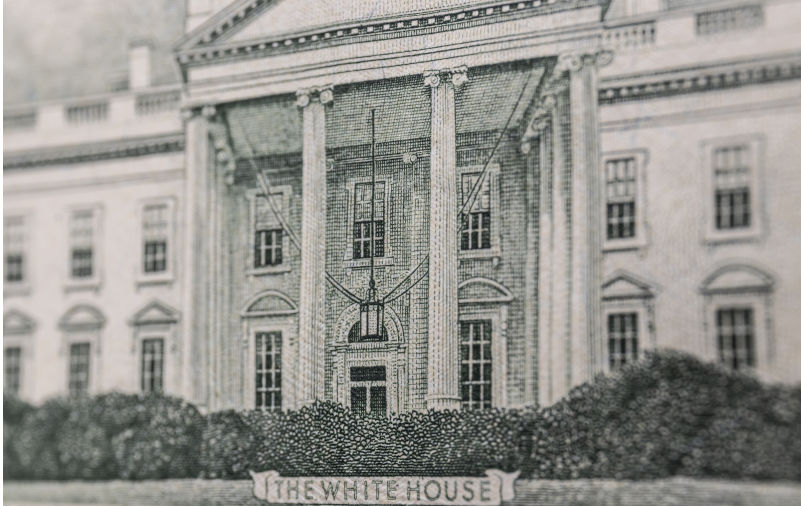Gross inequality and economic injustice: How did it come to this?
November 23, 2024
“Remoteness between ownership and operation … is an evil in the relations between men, likely or certain in the long run to set up strains and enmities which will bring to nought the financial calculation.” - John Maynard Keynes
In the most powerful democracy on earth, a cheap con man and would-be dictator with contempt for knowledge and science and art and for most of his fellow human beings, has been elected leader by an angry electorate.
Though fingers can be pointed at Harris and Biden and their backers in the current Democratic Party, it may be of value to take a longer view.
Leaving aside the abject failure of President ‘Believe in Hope’ Obama to address the gross inequality and economic injustice arising from the GFC, in which ordinary taxpayers bailed out financial institutions that had collapsed through their own negligence and recklessness, it can be noted that wages in the US have stagnated for fifty years. Over the same period, the share of wealth going to owners of corporations has skyrocketed, with individuals such as Musk and Bezos now having so much wealth that it is actually feasible for Trump to seek to emulate in the US the oligarchic political (and not only economic) structure that pertains in the land of his friend Putin, one of the few people he admits to admiring.
Notably, one of the only policies that Trump advanced was to impose tariffs: taxes on imports so as to facilitate the development of home-based industry and employment. Although this policy idea has been largely attacked and in places derided by media commentators and economists, in practice trade is not simply ‘free’ internationally, in any sense, and tariffs are generally regarded by governments as legitimate policy tools in certain circumstances. The EU, for instance, imposes a major tariff on Chinese electric vehicles (even though it could be argued that China’s massive investment and capacity in this space means that it is best positioned to fulfil the world’s EV needs, with all the benefits for the environment associated with this efficiency and lower cost of production).
To impose a tariff is to restrict or impose a cost on the capacity of corporate leaders to move money or investment to where the lowest costs or the highest profits can be obtained. It is surely not a coincidence that US wages began to fall in real terms at the same time as the rise to economic dominance of multinational corporations made national governmental control of the movement of international capital more difficult.
In 1974, the Canadian economist Stephen Hymer, sometimes regarded as the ‘father’ of International Business economics, stated in a submission to the UN that policy frameworks facilitating unrestricted capital movement, driven by the rise to dominance of multinational corporations, threaten international peace, prosperity and freedom by dramatically increasing inequality and reducing the capacity of nations ‘to plan their own future consistent with their own goods’ (Hearings Before the Group of Eminent Persons to Study the Impact of Multi-national Corporations on development and on International Relations).
Moreover, Hymer noted, offshore investment by companies headquartered in the wealthy nations, with the US of course being the wealthiest, exports jobs overseas, puts upward pressure on unemployment, downward pressure on wages and conditions, and results in a decreasing share of national income going to employees.
Sound familiar?
It is rarely remembered that the economist John Maynard Keynes, widely credited with creating modern national macroeconomic management, argued against the unrestricted international flow of capital and in favour of national autonomy and local production: ‘There may be some financial calculation which shows it to be advantageous that my savings should be invested in whatever quarter of the habitable globe shows the greatest marginal efficiency of capital or the highest rate of interest. But experience is accumulating that remoteness between ownership and operation … is an evil in the relations between men, likely or certain in the long run to set up strains and enmities which will bring to nought the financial calculation.’
Keynes took as an example the relations between England and Ireland, noting ‘The fact that the economic interests of the two countries have been for generations closely intertwined has been no occasion or guarantee of peace’. And he stated further: ‘I sympathise, therefore, with those who would minimise, rather than with those who would maximise, economic entanglement between nations. Ideas, knowledge, science, hospitality, travel these are the things which should of their nature be international. But let goods be homespun whenever it is reasonably and conveniently possible, and, above all, let finance be primarily national’ (The Yale Review, 1933).
This final point is especially pertinent to Australia, since as Professor Clinton Fernandes has demonstrated, most of Australia’s largest public companies are now majority owned by US investors.
Keynes put this argument to his fellow negotiators in Washington planning the postwar economic order, in the early 1940s, but his view did not prevail. Rather, the view that prevailed was that of Wall Street and the City of London.
A historical perspective can help us make sense of concerning contemporary developments and offer ideas for how to move society towards greater social cohesion and happiness. On this point, too, Keynes is instructive:
‘Those who seek to disembarrass a country of its entanglements should be very slow and wary. It should not be a matter of tearing up roots but of slowly training a plant to grow in a different direction.’
Article updated November 25, 2024.
